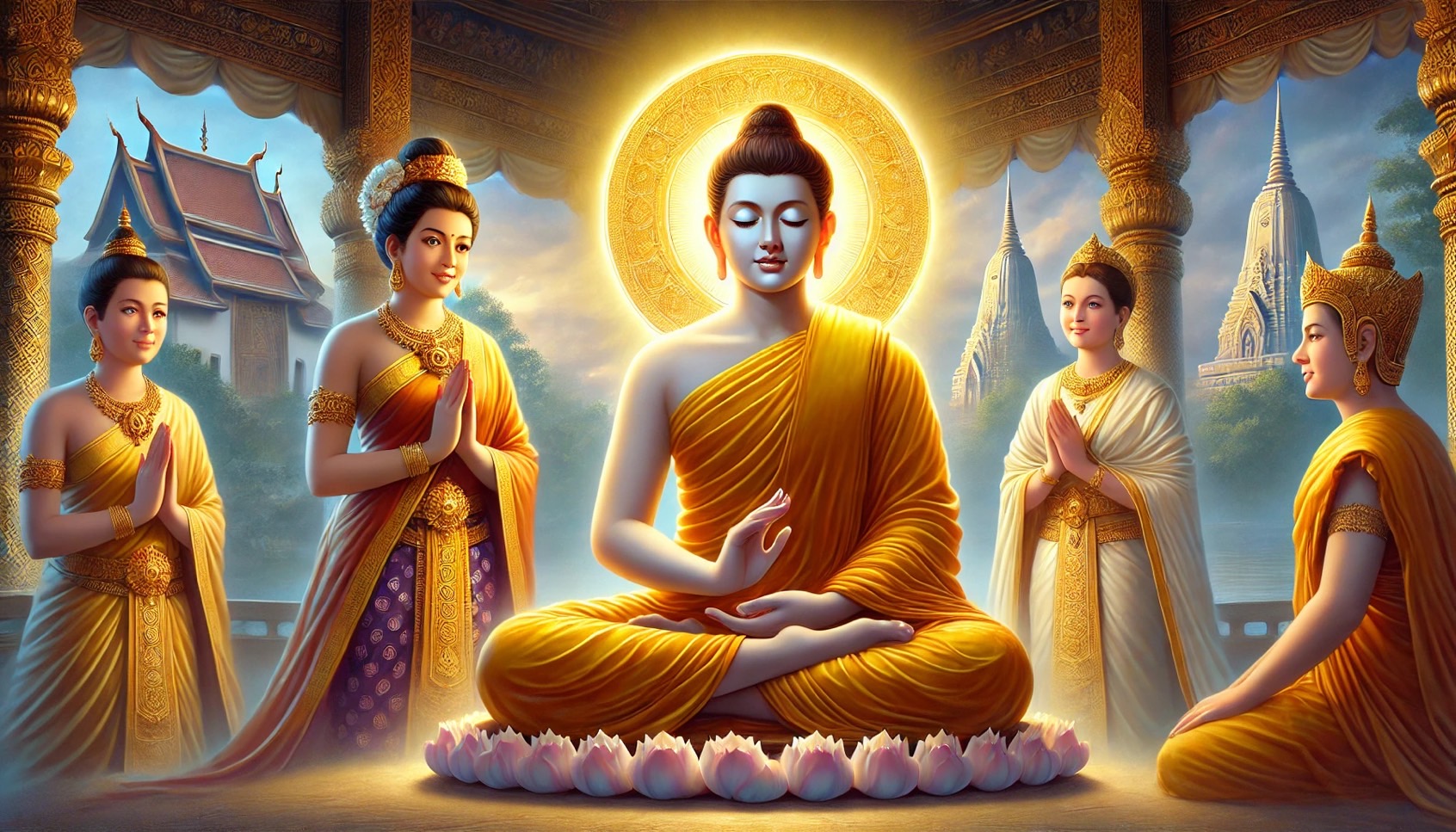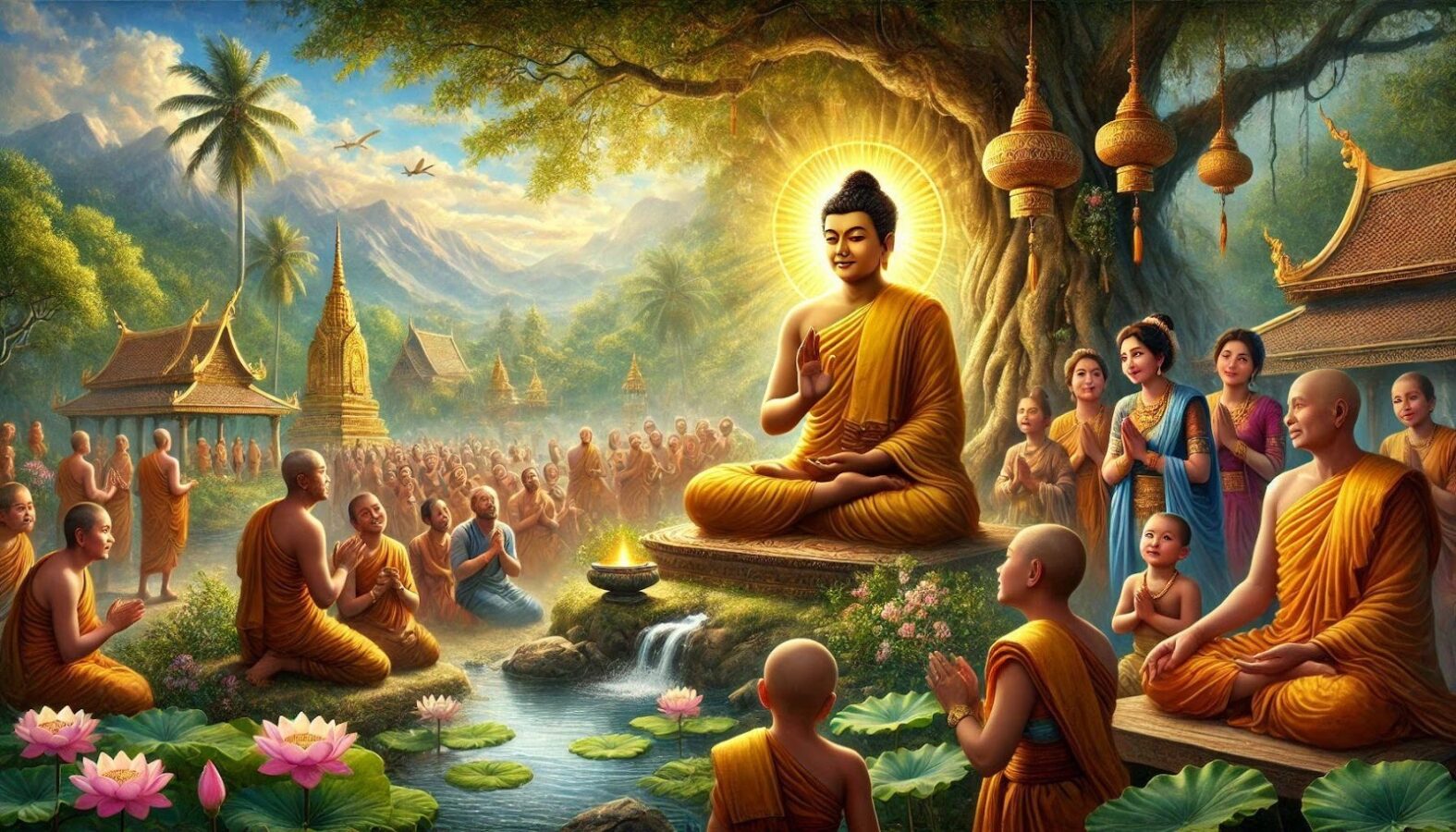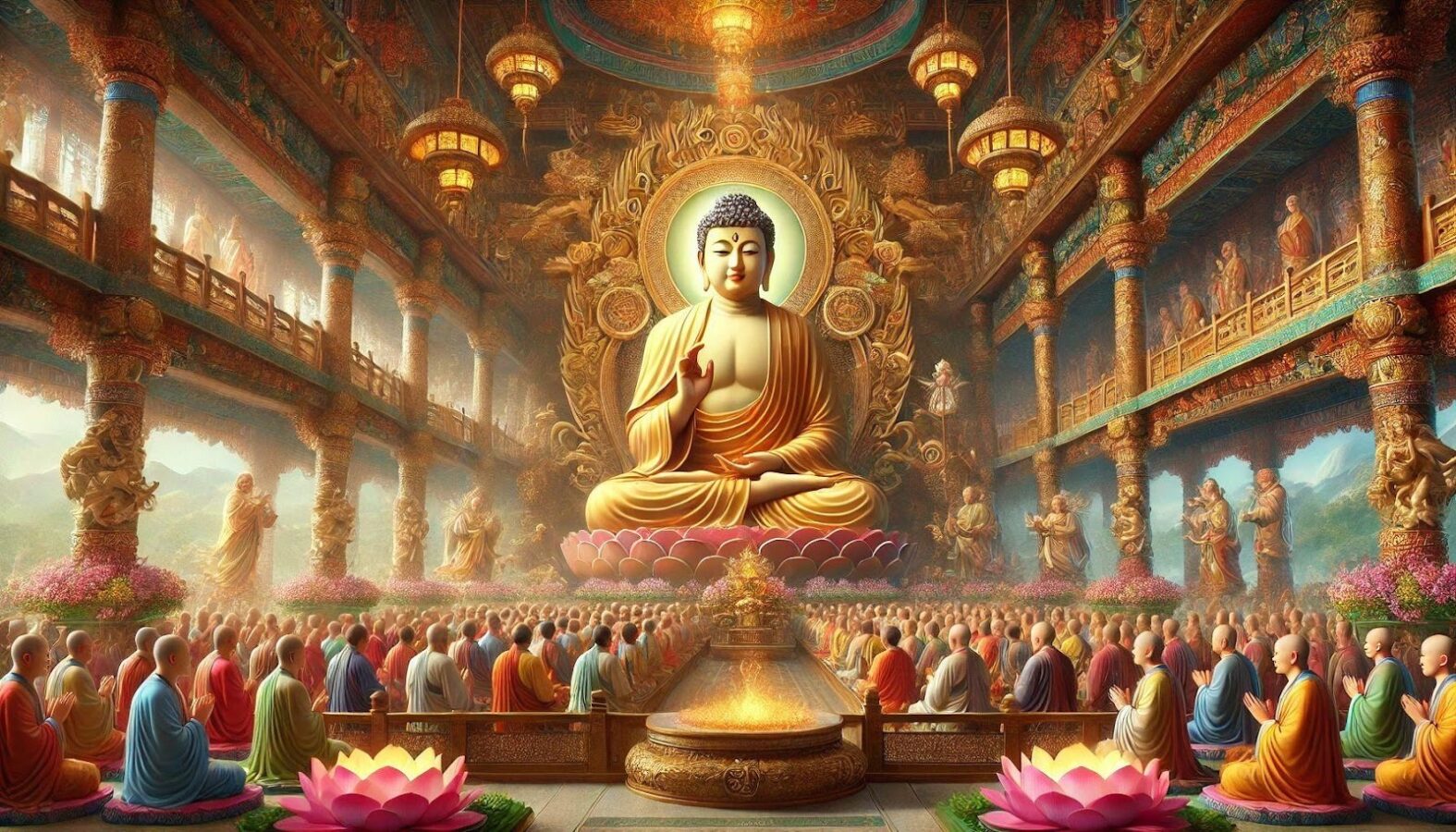
Date: 03/30/2024 03/31/2024
Location: Star Lake Meditation Center
Teacher: Otto Huang
Dharma Talk
One cannot have too much merit, but it should be used for liberation
Once, Buddha came to visit Shravasti, the capital of the Kosala Kingdom, and stayed at Jetavana, the Park of the Jeta Grove, located just outside the southern gates of the city.
One day, King Pasenadi of Kosala, dressed in regal attire, came to pay homage to Buddha and requested that Buddha and the monastic community reside in Shravasti for three months to accept his offerings.
Buddha silently consented.
King Pasenadi constructed a large lecture hall outside the palace and encouraged his ministers to also joyfully make offerings.
After one of the meal offerings, King Pasenadi said to Buddha:
“World-Honored One! I have heard you say: giving alms to an animal can bring a hundredfold of merit, a thousandfold for giving to a person who violates precepts, ten thousandfold for giving to one who upholds them, a hundred millionfold for giving to an ascetic free from desire, and incalculable for giving to a Stream-Enterer, not to mention those beyond that level. Today, I have made offerings to you and the monastic community, so the merit and virtue I have gained should be incalculable. Today, I believe my merit is complete.”
Buddha responded to King Pasenadi:
“Great King! Do not speak so! One can never have too much virtue. How can you say your merit is complete? Why is it that one can never have too much virtue? Because the cycle of birth and death is so vast and incalculable.
Long ago, in the place where we lived, there was a king named ‘Landowner,’ his queen was ‘Sun-Moon Light,’ and their prince was named ‘Lamp Light.’ Prince Lamp Light was very noble, and later he renounced worldly life to practice the way and become a Buddha, gradually leading eighty billion beings to Arhatship.
After Prince Lamp Light became a Buddha, Landowner King personally invited the Buddha Lamp Light into the palace to make offerings and vowed to support the Buddha and the eighty billion Arhats for life, gaining silent consent from the Buddha Lamp Light.
Landowner King made offerings to Buddha Lamp Light for seventy thousand years.
After the passing of Buddha Lamp Light, Landowner King built many temples and stupas, continuing to support other Arhats until they also passed away. He also built stupas and temples for these Arhats’ relics, another seventy thousand years passed until the teachings of Buddha Lamp Light disappeared, and then he passed away.
Great King! That Landowner King was none other than a former life of mine. At that time, I made offerings for seventy thousand years to the Buddha and seventy thousand years to the relics, only wishing to enjoy the fruits of my merit in the cycle of birth and death, never seeking liberation. Great King! Do you know? The merit I accumulated then has already been exhausted, not even the smallest fraction remains. Why is that? Because the cycle of birth and death is so vast and incalculable that over such a long time, even the greatest of merits can be exhausted, leaving nothing behind.
Therefore, Great King! Do not say: ‘Today my merit is complete.’ Instead, you should say: ‘Today, all my actions of body, speech, and mind are directed towards liberation. I do not seek to enjoy the fruits of merit within the cycle of birth and death, but I seek the enduring and immeasurable peace.’”
Upon hearing Buddha’s teachings, King Pasenadi was struck with awe and fear. After weeping with sadness, he wiped away his tears, paid his respects to Buddha, and acknowledged his mistake. He said:
“World-Honored One! I have been so foolish. Please accept my repentance! With a prostration of my entire being, I express my resolve to reform. From now on, I will not speak in such a way again. Please accept my repentance.”
“Very good, Great King! You are capable of repentance and change. I accept your repentance; do not speak like that again.”
At that time, among the assembly, a bhikkhuni named Khema stood up to praise Buddha’s admonition to King Pasenadi and took her own past life as an example, confirming the teaching that one should aspire for liberation rather than seeking the enjoyment of merits in the cycle of birth and death. She said that thirty-one eons ago, her past life was a messenger named ‘Pure Black,’ who made offerings to the then-Buddha and vowed to use such merit to avoid the three evil realms and attain liberation upon seeing the Buddha and hearing the Dharma in a future life. It was because of such conditions that in this life she was able to meet Shakyamuni Buddha and attain liberation through practice.
Buddha praised her as the foremost bhikkhuni in faith and liberation among his hearer disciples.

